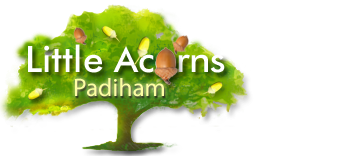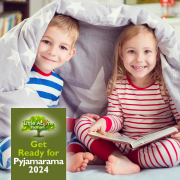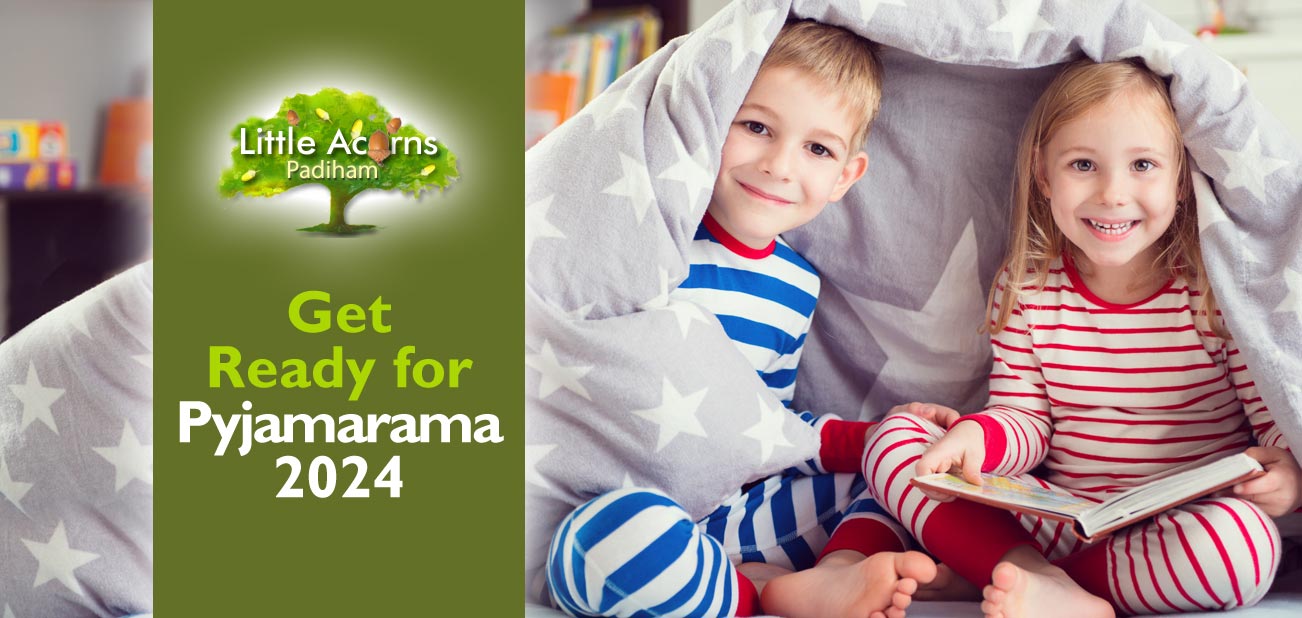
Get ready for Pyjamarama 2024. This year it arrives on Friday 17th of May in nurseries, preschools, schools and homes all around the Nation. That date is not carved in stone, though, as some settings may find an alternative date more convenient for their particular circumstances.
What is Pyjamarama?
 Pyjamarama is a one-day fundraising event that’s organised through the children’s reading charity BookTrust. It takes place each year across a variety of UK settings including homes, schools, preschools, nurseries and more. As well as being great fun for those organising and taking part, the initiative is beneficial to millions of disadvantaged children. The ultimate aim is to raise money to fund the purchase of books and resources, so that every child in the UK gets the chance for bedtime stories and each family has proper reading opportunities. The initiative is hugely popular, great fun, and transforms lives. Today, we take a look at what to expect, how to get involved, and the many benefits of Pyjamarama.
Pyjamarama is a one-day fundraising event that’s organised through the children’s reading charity BookTrust. It takes place each year across a variety of UK settings including homes, schools, preschools, nurseries and more. As well as being great fun for those organising and taking part, the initiative is beneficial to millions of disadvantaged children. The ultimate aim is to raise money to fund the purchase of books and resources, so that every child in the UK gets the chance for bedtime stories and each family has proper reading opportunities. The initiative is hugely popular, great fun, and transforms lives. Today, we take a look at what to expect, how to get involved, and the many benefits of Pyjamarama.
“Spend a day in your pyjamas to raise money for BookTrust and be part of something amazing.”
How Does Pyjamarama Work?
Settings like Little Acorns Nursery in Padiham first register with the Pyjamarama fundraising scheme, well ahead of the event date. In return, they receive a free downloadable fundraising pack. This contains information and activity resources that they’ll be able to use with the nursery children on Pyjamarama day as well as things like posters to publicise the event. Access to BookTrust’s Pyjamarama Hub will also be given. This allows access to additional resources and activity ideas for children to take part in.
On the day itself, the idea is for children and staff to come to the nursery/preschool dressed in pyjamas to add an extra element of fun. Having said that, PJs are not obligatory — children can wear something else if they prefer, for example colourful T-shirts. Either way, we ask that each child brings £1 with them. This will be donated to the BookTrust charity to raise money for disadvantaged children, who might otherwise not have access to bedtime stories. The ensuing day will be relaxed and fun, with time spent together reading and sharing stories, watching specially-recorded videos from children’s favourite authors and taking part in a whole host of other fun, reading- and story-related activities.
At the end of the day, children who took part in Pyjamarama will receive certificates to take home. All money raised by the children and setting will subsequently be sent off to the fundraising team at BookTrust.
Pyjamarama is Fun, Educational & Worthwhile
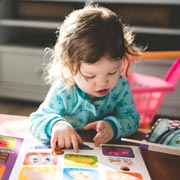 Pyjamarama is always a fun day for both adults and children. The added aspect of pyjamas makes it special, quirky and relaxed. And, at the end of the day, it’s incredibly worthwhile. Not only does it raise money to give disadvantaged children and their families opportunities for reading and bedtime stories, but it also encourages those children taking part in Pyjamarama to read more, for pleasure as much as anything. Additionally, it gives children a different perspective and encourages altruism and empathy for others less fortunate than themselves.
Pyjamarama is always a fun day for both adults and children. The added aspect of pyjamas makes it special, quirky and relaxed. And, at the end of the day, it’s incredibly worthwhile. Not only does it raise money to give disadvantaged children and their families opportunities for reading and bedtime stories, but it also encourages those children taking part in Pyjamarama to read more, for pleasure as much as anything. Additionally, it gives children a different perspective and encourages altruism and empathy for others less fortunate than themselves.
“Raise vital funds to help every child get a bedtime story.”
Every £1 helps. So, children and parents — please get involved. Here’s how fundraising can typically help:How Pyjamarama Helps Disadvantaged Children
How Can You Get Involved?
“Through Pyjamarama we want to help support the children who are at risk of missing out on the joy and confidence that bedtime stories provide.”
If you haven’t already seen them, look out for posters and a letter to parents highlighting the date for Pyjamarama at your child’s setting this year. On the day, please ensure your child goes to nursery/preschool or school with £1 and is ideally dressed in PJs although, as we said before, it’s not obligatory — but is a lot of fun when everyone joins in.
“Naomi has seen how reading takes her into imaginary worlds and helps her deal with everyday worries and is amazed how it is also helping her to do well in all subjects at school.”
Little Acorns Nursery & Preschool, Padiham
High-Quality Weekday Childcare in Padiham, Lancashire
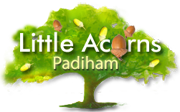
Babies and under-fives get the very best start at Little Acorns Nursery in Padiham. As well as offering a convenient childcare service in a loving and homely environment, children also receive a comprehensive early years education at Little Acorns. We also support all Government-funded free childcare schemes including free childcare hours for eligible 2-year-olds and free childcare hours for eligible 3 and 4-year-olds. Contact us if you’d like to register your child for a childcare place. Or, if you’re not yet sure, why not arrange a guided tour? We can show you and your little one around to see how well they fit in. We’re also here to answer any questions. Please choose a button to get started:
Little Acorns is a nursery and preschool in Padiham, (BB12), also being conveniently close by for those in Hapton, Rose Grove, Burnley, Altham, Huncoat, Read, Simonstone, Sabden, Higham, and Wood End.
BookTrust is a Registered Charity, number 313343.
